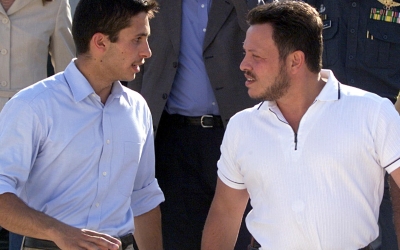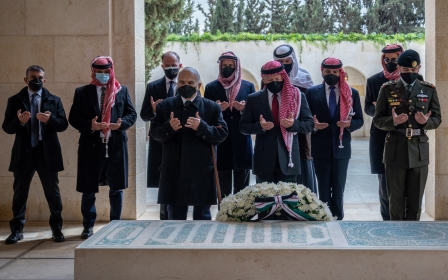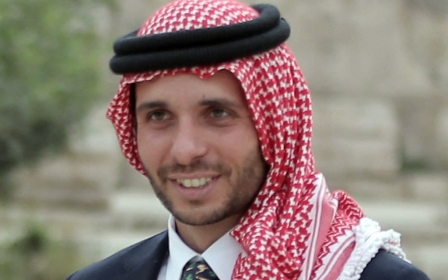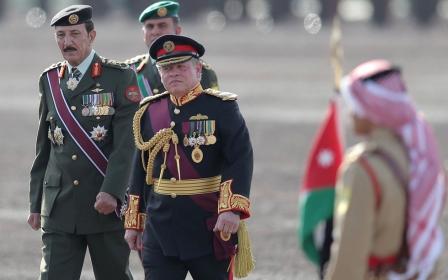No charges against Jordanian prince over 'destabilisation' plot
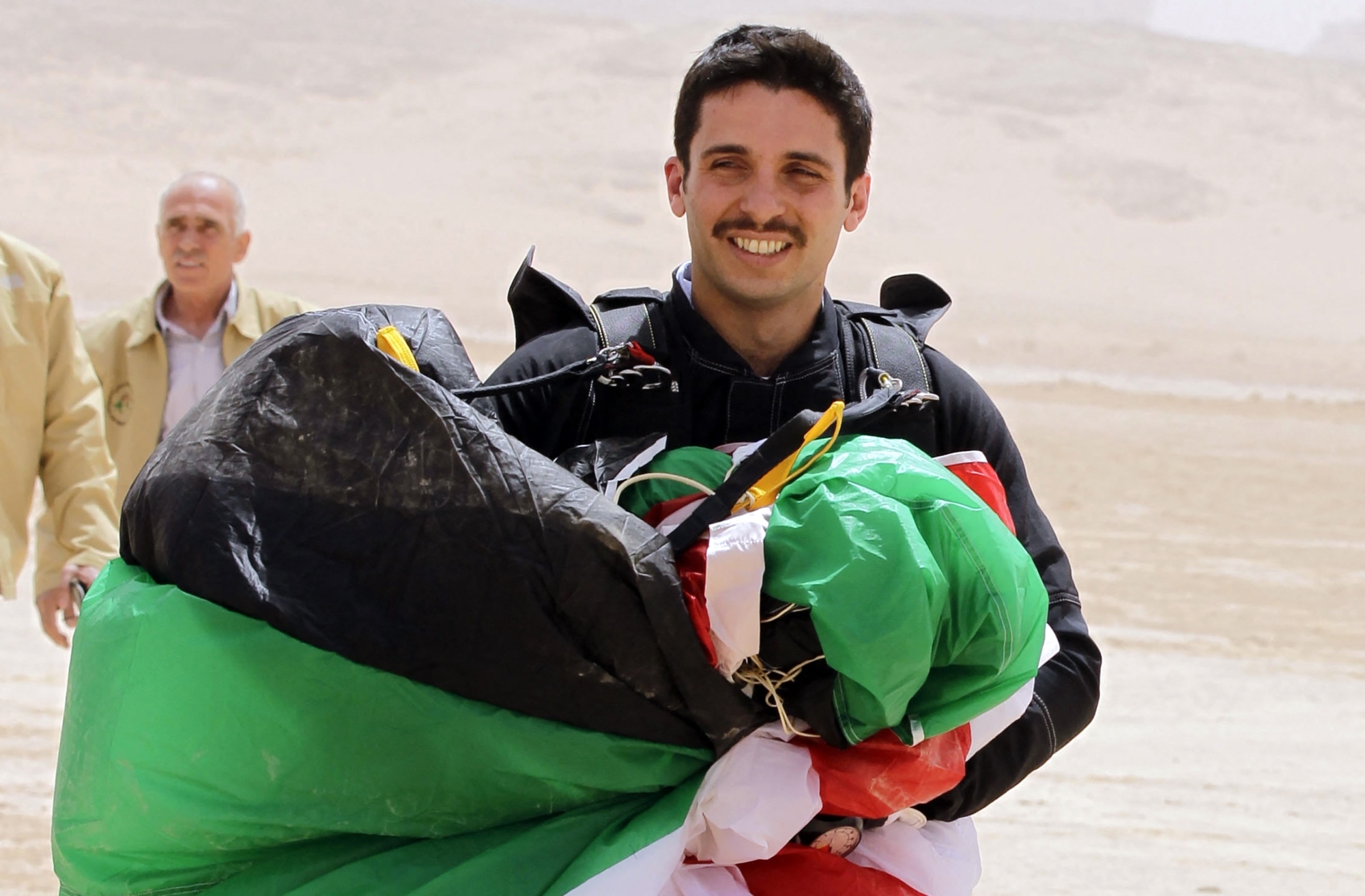
The half-brother of Jordan's King Abdullah will not face trial after recent accusations of sedition, the country's prime minister told a closed session of parliament on Monday.
Lawmakers who attended the meeting quoted Prime Minister Bisher al-Khasawneh as saying that the dispute had been solved within the family, while denying there had been an "attempted coup". They instead said that the premier "spoke of a bid to destabilise security and stability".
On Sunday, the former crown prince, Hamzah bin Hussein, appeared alongside the king for the first time since being accused earlier this month of being part of a conspiracy to "destabilise the kingdom's security" and placed under house arrest.
More than a week ago, Jordan arrested at least 16 people, including Hassan bin Zayed, a member of the royal family, and Bassem Awadallah, a former top official, accusing them of plotting against the "security and stability" of the kingdom.
It's not clear what the nature of the alleged plot was or if Prince Hamzah was connected to it. Nor is it known what specific accusations the detainees are facing.
After claiming he had been put under house arrest, Hamzah spoke out using social media and the press, accusing Jordan's rulers of corruption and ineptitude before rolling back his comments in a statement and voicing loyalty to the king.
He accused the "ruling system" of believing that "its personal interests, that its financial interests, that its corruption is more important than the lives and dignity and futures of the 10 million people that live here".
King Abdullah said last Wednesday that the crisis had been ended after Hamzah agreed to sign a pledge of loyalty. Abdullah did not reveal any details about the alleged wrongdoings by the former crown prince, but said that Hamzah was being taken care of by the palace.
However, the UN said on Friday it was concerned that Hamzah was still under house arrest, despite having not faced charges. It also expressed concern about a lack of transparency for the other 16 people arrested.
Since Hamzah pledged loyalty to his half-brother, the country's prosecutor general banned the publication of any information about the alleged plot.
Prince Hamzah spied on
Hamzah, 41, is the son of the late King Hussein and his fourth wife, the US-born Queen Noor. He was Jordan's crown prince until 2004, when King Abdullah II replaced him with his own son Hussein bin Abdullah.
In an audio recording of a conversation between Hamzah and the head of Jordan's military, Major General Yousef Huneiti, the general had told the former crown prince that he "crossed a red line" and warned him against talking to disaffected tribal leaders and others in Jordan who complain about the kingdom's current state of affairs.
Notably, in the rec0rding detailing Hamzah's house arrest, which was sent to Middle East Eye, neither the subject of an alleged attempted coup by others arrested in the security sweep, nor contacts with foreign powers and their security services were raised.
Another audio recording given to Middle East Eye on Friday revealed that Hamzah had been spied on by the Jordanian secret police while he was on holiday in Vienna in 2019.
An alleged Jordanian spy told Hamzah that he was sent to spy on him by the ruling monarchy.
"After he confessed, he started to kiss me on my head. 'Please sir, don't tell anyone. You'd destroy my future.' What is this? It's horrible," Hamzah says in the recording, which appears to have been a private message.
A leaked video of the interaction between Hamzah and the alleged spy shows the prince telling the security official: "You're coming to take photos of me, and now you tell me you don't want your picture taken?"
Messages of support for King Abdullah
Following the news of the alleged plot against the Jordanian monarch, King Abdullah received messages of support from a number of countries, including from the United States, Saudi Arabia, Egypt, Turkey, Qatar, and the United Arab Emirates.
Amman enjoys warm ties with Washington and has formal diplomatic relations with Israel, but tensions arose during the Donald Trump presidency, which tilted US policy further in alignment with Israel's right-wing government.
Jordan also appeared unimpressed with Israel's normalisation deals with the UAE and other Arab countries, which had been hailed as historic "peace" agreements.
"Occupation and peace simply cannot coexist," Abdullah said earlier this year.
"The Palestinian people have a right to an independent, viable, and sovereign state on June 4, 1967 lines, to live alongside Israel in peace and security."
The Washington Post reported last week that a Saudi delegation visiting Amman requested the release of Awadallah, the former senior official who had been arrested by authorities.
The Saudi officials wanted to take Awadallah, who serves as an adviser to the Riyadh's powerful Crown Prince Mohammed bin Salman, back to the kingdom, the Post cited a Middle Eastern intelligence official as saying.
Middle East Eye delivers independent and unrivalled coverage and analysis of the Middle East, North Africa and beyond. To learn more about republishing this content and the associated fees, please fill out this form. More about MEE can be found here.


